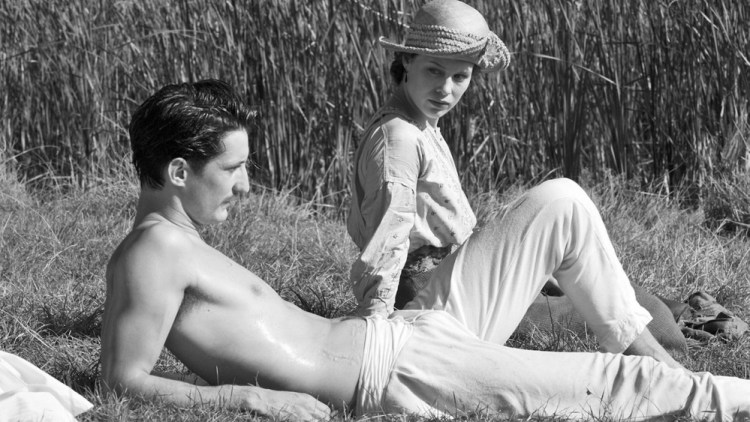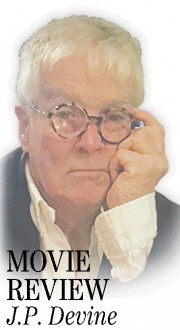French director Francois Ozon, “8 Women,” whose work I am not familiar with, has reached back, far, far back, to the great Ernst Lubitch, who made happier films, “Ninotchka,” “The Shop Around the Corner” to “Broken Lullaby,” to update a tale of the sad, cruel era of post World War I, and three lovers caught in fate’s web.
It seems that in all great fields of blood and death, there is always a flower or a stone, something beautiful to bring the greater horror down to something we can manage.
Such is director Ozon’s “Frantz,” a tale of two damaged souls and the ghost that stands between them, the ghost of a fallen soldier that neither of them can forget.
Frantz (Anton von Lucke) is the specter that unites the grief of the two, a German soldier, who was killed in the trenches of France.
In the opening of the film, Anna, (an amazing, touching Paula Beer), a sweet and lovely German woman who is the fiance left among the grieving, each day brings flowers to Frantz’s grave in a small church yard in the German village, where she lives with Frantz’s aging parents.
One day as she approaches the grave, she sees a pale, thin, well-dressed young man Adrien Rivoire (Pierre Niney) who also has brought flowers, and stands, shaking and weeping over the grave.
We learn after they meet, that Adrien is a former French soldier, who after the war went back to his position as first violinist in the Paris symphony. But, here he is now standing over the grave of a dead German soldier.
After Anna sets in motion a series of visits to Frantz’s parents, Doktor Hans and Magda Hoffmeister (Ernst Stotzner/Marie Gruber) with Anna, we learn more in flashbacks, that prewar, Adrien and Frantz met at the famous Louvre museum and became friends. Lovers no doubt? Here, clearly is a tragic tale of guerre et amour.
We expect to see a bonding and painful joining of two disparate souls. Those knowledgeable of the original story know this is not to be.
Ozon takes his time to reveal, in bits and pieces played out like a mystery novel, the true story of Adrien and Frantz, and he does it well.
While walking with the fateful three, Ozon adds them into the wider canvass that reveals the Anti-German/anti-French nationalism that festered in both countries, played out in local festivals and beer hall scenes.
Here Ozon cleverly and beautifully goes deeply into each human heart. We watch the tiny parts, the small wounds in small villages in both countries that mesh and infect.
There will be other players here in France and Germany. After Adrien leaves, sending back letters that suddenly stop, Anna, now caught up in the mystery, goes in search of him, searching in the military libraries, the morgues and tiny mysterious hotels, following one clue after another, until finally the map shrinks and they come together in a great French manor.
Shot in lustrous black and white, Ozon employs an interesting conceit: the players from time to time walk into colored scenes, forests, cafes, hilltops. You’ll notice Pascal Marti’s glowing camera work, and Philippe Rombi’s score has been waiting for this film.
Its only flaw, if it is one, is Ozon’s slow drip, drip, drip of revelations, taking about 10 to 15 minutes too long to the conclusion.
“Frantz” with its strong actors, compelling script and score is certain to earn a Best Foreign film nomination.
J.P. Devine is a former stage and screen actor.
Send questions/comments to the editors.




Success. Please wait for the page to reload. If the page does not reload within 5 seconds, please refresh the page.
Enter your email and password to access comments.
Hi, to comment on stories you must . This profile is in addition to your subscription and website login.
Already have a commenting profile? .
Invalid username/password.
Please check your email to confirm and complete your registration.
Only subscribers are eligible to post comments. Please subscribe or login first for digital access. Here’s why.
Use the form below to reset your password. When you've submitted your account email, we will send an email with a reset code.